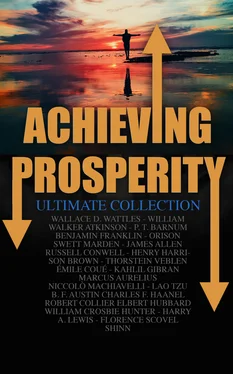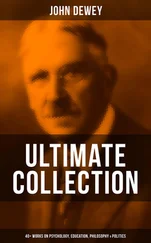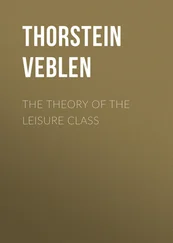Adulterating and imitating liquors is a very large business; and I don’t know of anybody who will deny that this particular humbug is very extensively cultivated. There are a great many people, however, who will talk about it as they do in Western towns about fever and ague: “We don’t do anything of the kind here, but those other people over there do!”
There is very little pure liquor, either malt or spirituous, to be obtained in any way. The more you pay for it, as a rule, the more the publican gains, but what you drink is none the purer. Importing don’t help you. Port is—or used to be, for very little is now made, comparatively—imitated in immense quantities at Oporto; and in the logwood trade, the European wine-makers competed with the dyers. It is a London proverb, that if you want genuine port-wine, you have got to go to Oporto and make your own wine, and then ride on the barrel all the way home. It is perhaps possible to get pure wine in France by buying it at the vineyard; but if any dealer has had it, give up the idea!
As for what is done this side of the water, now for it. I do not rely upon the old work of Mr. “Death-in-the-pot Accum,” printed some thirty years ago, in England. My statements come mostly from a New York book put forth within a few years by a New York man, whose name is now in the Directory, and whose business is said to consist to a great extent in furnishing one kind or another of the queer stuff he talks about, to brewers, or distillers, or wine and brandy merchants.
This gentleman, in a sweet alphabetical miscellany of drugs, herbs, minerals, and groceries commonly used in manufacturing our best Old Bourbon whisky, Swan gin, Madeira wine, pale ale, London brown stout, Heidsieck, Clicquot, Lafitte, and other nice drinks; names the chief of such ingredients as follows:
Aloes, alum, calamus (flag-root) capsicum, cocculus indicus, copperas, coriander-seed, gentian-root, ginger, grains-of-paradise, honey, liquorice, logwood, molasses, onions, opium, orange-peel, quassia, salt, stramonium-seed (deadly nightshade), sugar of lead, sulphite of soda, sulphuric acid, tobacco, turpentine, vitriol, yarrow. I have left strychnine out of the list, as some persons have doubts about this poison ever being used in adulterating liquors. A wholesale liquor-dealer in New York city, however, assures me that more than one-half the so-called whisky is poisoned with it.
Besides these twenty-seven kinds of rum, here come twenty-three more articles, used to put the right color to it when it is made; by making a soup of one or another, and stirring it in at the right time. I alphabet these, too: alkanet-root, annatto, barwood, blackberry, blue-vitriol, brazil-wood, burnt sugar, cochineal, elderberry, garancine (an extract of madder), indigo, Nicaragua-wood, orchil, pokeberry, potash, quercitron, red beet, red cabbage, red carrots, saffron, sanders-wood, turmeric, whortleberry.
In all, in both lists, just fifty. There are more, however. But that’s enough. Now then, my friend, what did you drink this morning? You called it Bourbon, or Cognac, or Old Otard, very likely, but what was it? The “glorious uncertainty” of drinking liquor under these circumstances is enough to make a man’s head swim without his getting drunk at all. There might, perhaps, be found a consolation like that of the Western traveller about the hash. “When I travel in a canal-boat or steamboat,” quoth this brave and stout-stomached man, “I always eat the hash, because then I know what I’ve got!”
It was a good many years ago that the Parliament of England found it necessary to make a law to prevent sophisticating malt liquors. Here is the list of things they forbid to put into beer: “molasses, honey, liquorice, vitriol, quassia, cocculus indicus, grains-of-paradise, Guinea-pepper, opium.” The penalty was one thousand dollars fine on the brewer, and two thousand five hundred dollars on the druggist who supplied him.
I know of no such law in this country. The theory of our government leaves people to take care of themselves as much as possible. But now let us see what some of these fifty ingredients will do. Beets and carrots, honey and liquorice, orange-peel and molasses, will not do much harm; though I should think tipplers would prefer them as the customer at the eating-house preferred his flies, “on a separate plate.” But the case is different with cocculus indicus, and stramonium, and sulphuric acid, and sugar of lead, and the like. I take the following accounts, so far as they are medical, from a standard work by Dr. Dunglison:—Aloes is a cathartic. Cocculus indicus contains picrotoxin, which is an “acrid narcotic poison;” from five to ten grains will kill a strong dog. The boys often call it “cockle-cinders;” they pound it and mix it in dough, and throw it into the water to catch fish. The poor fish eat it, soon become delirious, whirling and dancing furiously about on the top of the water, and then die. Copperas tends to produce nausea, vomiting, griping, and purging. Grains-of-paradise, a large kind of cardamom, is “strongly heating and carminative” ( i. e. , anti-flatulent and anti-spasmodic.) Opium is known well enough. Stramonium-seed would seem to have been made on purpose for the liquor business. In moderate doses it is a powerful narcotic, producing vertigo, headache, dimness or perversion of vision ( i. e. , seeing double) and confusion of thought. (N. B. What else does liquor do?) In larger doses (still like liquor,) you obtain these symptoms aggravated; and then a delirium, sometimes whimsical (snakes in your boots) and sometimes furious, a stupor, convulsions, and death. A fine drink this stramonium? Sugar of lead is what is called a cumulative poison; having the quality of remaining in the system when taken in small quantities, and piling itself up, as it were, until there is enough to accomplish something, when it causes debility, paralysis, and other things. Sulphuric acid is strongly corrosive,—a powerful caustic, attacking the teeth, even when very dilute; eating up flesh and bones alike when strong enough; and, if taken in a large enough dose, an awfully tearing and agonizing fatal poison.
The way to use these delectable nutriments is in part as follows:—Stir a little sulphuric acid into your beer. This will give you a fine “old ale” in about a quarter of a minute. Take a mixture of alum, salt, and copperas, ground fine, and stir into your beer, and this will make it froth handsomely. Cocculus indicus, tobacco-leaves, and stramonium, cooked in the beer, etc., give it force. Potash is sometimes stirred into wine to correct acidity. Sulphite of soda is now very commonly stirred into cider, to keep it from fermenting further. Sugar of lead is stirred into wines to make them clear, and to keep them sweet. And so on, through the whole long list.
It is a curious instance of people’s quiet acknowledgment of their own foolishness, that a popular form of the invitation to take a drink is, “Come and h’ist in some pizen!”
I know of no plan by which anybody can be sure of obtaining pure liquor of any description. Some persons always purchase their wines and liquors while they are under the custom-house lock and consequently before they have reached the hands of the importer. Yet there are scores of men in New York and Philadelphia who have made large fortunes by sending whisky to France, there refining, coloring, flavoring, and doctoring it, then re-shipping it to New York as French brandy, paying the duty, and selling it before it has left the custom-house! There is a locality in France where a certain brand of wine is made. It is adulterated with red-lead, and every year more or less of the inhabitants of that locality are attacked with “lead-colic,” caused by drinking this poisoned wine right at the fountain-head where it is made. There is more bogus champagne drank in any one year, in the city of Paris alone, than there is genuine champagne made in any one year in the world. America ordinarily consumes more so-called champagne annually than is made in the world, and yet nearly all the genuine champagne in the world is taken by the courts of Europe. The genuine Hock wine made at Johannisberg on the Rhine is worth three dollars per bottle by the large quantity, and nearly all of it is shipped to Russia; yet, at any of the hotels in the village of Johannisberg, within half a mile from the wine-presses of the pure article, you can be supplied for a dollar per bottle with what purports to be the genuine Hock wine. Since chemistry has enabled liquor dealers to manufacture any description of wine or liquor for twenty-five cents to a dollar a gallon, there are annually made and sold thousands of gallons of wine and brandy that never smelt a grape.
Читать дальше












